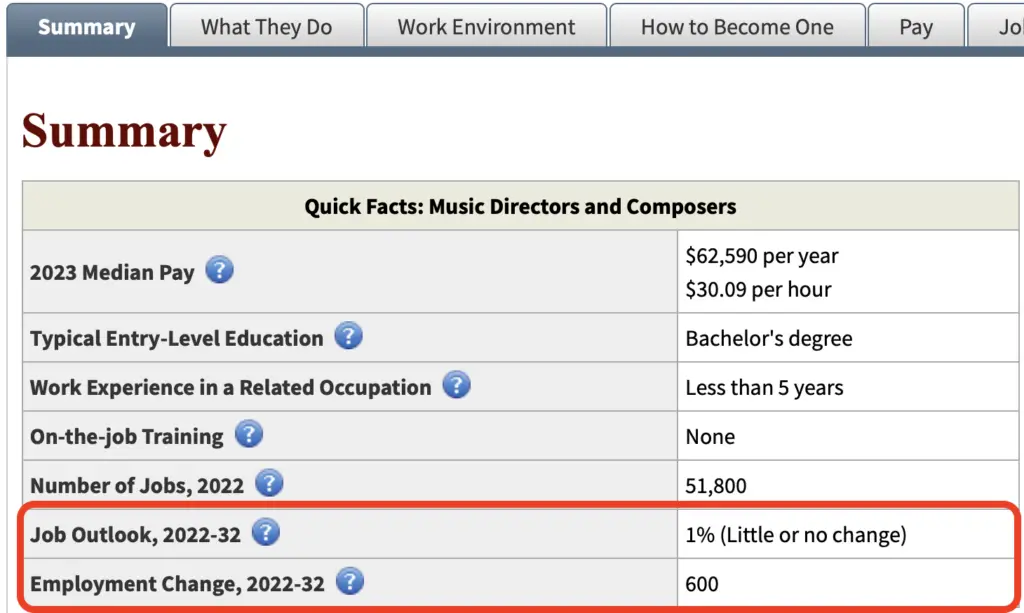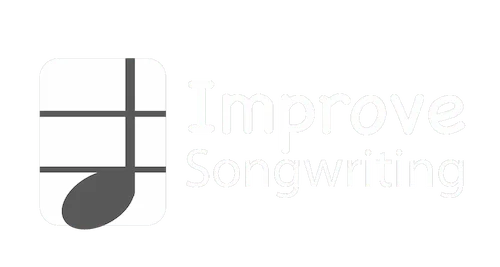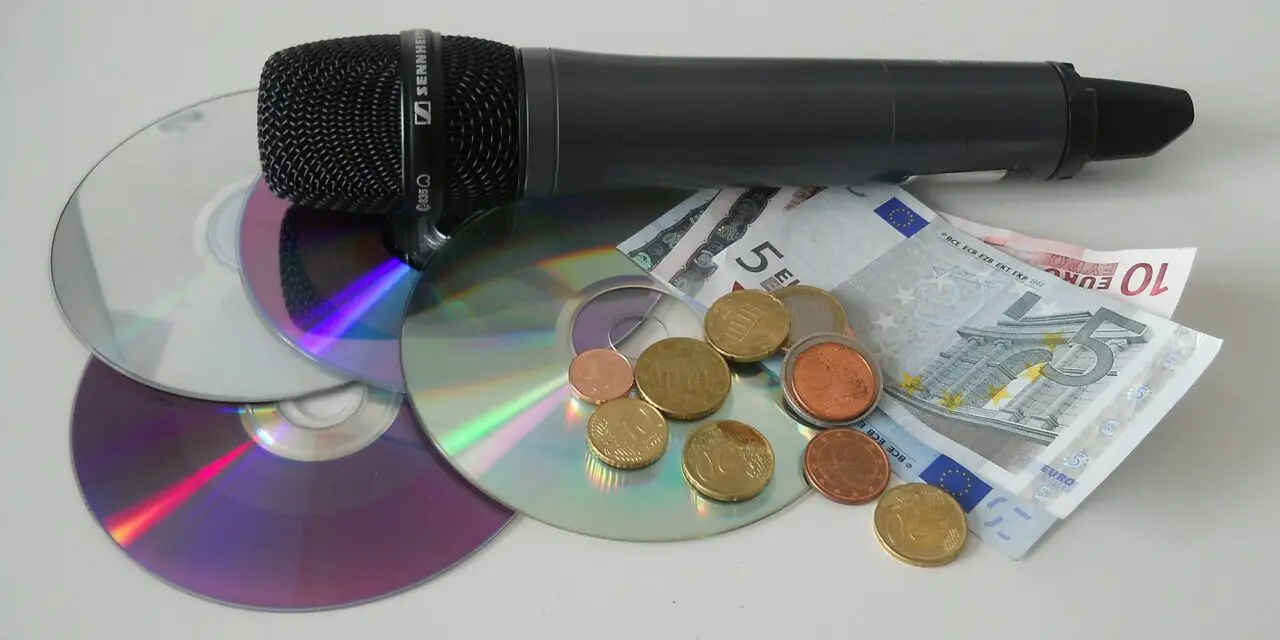So you think you can write songs… And you want to make money doing it?
Well, I’ve got some good news: if you’re hard-working and talented, there are more avenues than ever before to make money in songwriting!
On the other hand, there’s a ton of competition out there, as today’s technology has made it possible for almost anyone to make professional-quality music. At the same time, the music business has been shifting away from album sales to less lucrative revenue streams for the past few decades.
This means the days of writing one hit song and retiring to [insert tropical island paradise here] are probably long gone!
But if you’re ready to roll up your sleeves and start writing songs, you’ll find that there are still plenty of opportunities for success.
In this in-depth guide, we’re going to answer the question, “How much money do songwriters make?” (Spoiler alert: As you can probably guess, many people make NOTHING as a songwriter, while a few mega-stars make millions of dollars per year. But for typical songwriters, you can make an upper-middle class living – if you know what to do!)
Plus, we’ll cover everything you need to know to get paid for your songs – so be sure to read all the way to the end!
Improve your songwriting by mastering piano.
$49
ONLY
What is a “Songwriter?”
Before we talk about how much money you can make as a songwriter, we need to be clear about the term “songwriter.”
Obviously, “songwriter” refers to someone who writes songs, but what does that mean in a day and age where songs are so complex?
The fact is, today’s successful commercial songs usually consist of a handful of key components:
- The lyrics
- The melodies
- The rhythms
- The production
That last one is especially important!
Think about it: If you tune into the Top 40 and listen to ANY of the latest hits, you’ll discover that about 90% of charting songs are highly produced (and engineered to be “danceable”) – especially in genres like pop, hip hop, rap, and dance/electronic that are dominating right now.
So it’s worth asking yourself, which aspect of songwriting are you pursuing? Because unless you’re good at literally everything, you may find out firsthand how hard songwriting is as you try to create and sell entire songs from scratch on your own.
Even songwriters can have a specialty! If you’re good at coming up with catchy hooks, you may choose to be a topline songwriter (the one who comes up with a melody and lyrics) and find a producing partner to create great beats for you. Or you may be great at music composition, but hopeless when it comes to words – this may mean partnering with a lyricist.
I’m telling you this so you can expand your definition of what it means to be a songwriter. If you want to sell songs in today’s music business, niching down may be your best option!
The Two Different Types of Copyright in Music
We should also be clear about how song copyrights work.
Songs are complex, so every piece of the creative process can involve different contributors. Plus, a finished song can divvy up rights associated with the original sound recording, the lyrics, live performances, and more.
The copyright to a song typically consists of master rights and publishing rights. I know it kinda sounds like a Star Wars thing, but “master rights” actually refers to the master sound recording and how it gets played or licensed. As a songwriter, unless you have a hand in the actual sound recording of your work, then your contribution falls under the publishing side, which includes:
- Notes
- Chords
- Rhythms
- Lyrics
- Melodies
This is why it’s so important to consider which aspect of songwriting you want to do!
It’s entirely possible to just write lyrics, or just make beats, or just create demos of songs that go on to be produced. But the more versatile you are, the more money you may be able to make – both because you can contribute a greater percentage on each project, and because you’ll have more potential opportunities!
Just remember, like in any business, a small slice of an enormous pie is still better than keeping a whole pie to yourself that’s super small. (I know, now I’m totally craving some pie… Maybe chocolate creme?)
Ultimately, your role may be just one of several, all of which are needed to bring a full track from idea to smash hit!
How Do Songwriters Get Paid for Their Songs?
Now that we’ve talked about the different facets of songwriting, let’s look at several specific ways that songwriters can get paid. There are a lot of different types of royalties for songs that you need to understand!
Physical Mechanical Royalties
As a songwriter, you receive mechanical royalties on the sale or reproduction of a song on vinyl, CD, cassette, and other physical media through the Harry Fox Agency. Right now, the rate is 9.1 cents per song. This is the total mechanical royalty set by the Copyright Royalty Board, and is split among co-writers and publishers. Physical album sales aren’t as big as they used to be, but can still be an important revenue stream.
Digital Download Mechanical Royalties
As a songwriter, you also receive mechanical royalties on digital downloads of a song. Like with the physical mechanical royalty, the digital download rate is 9.1 cents per song. You can expect to accrue these royalties through platforms like iTunes and Amazon.
Streaming Mechanical Royalties
As a songwriter, you can expect to receive a mechanical royalty for streaming. Some of the biggest platforms for this include Spotify, Pandora, Apple Music, and YouTube.
Sync Licensing Fees
As a songwriter, you will get sync (“synch”) licensing fees when your song is licensed for use in video (primarily television and movies, but online video as well). This sync licensing rate can be negotiated directly between the two parties – and proceeds from a deal are split 50/50, with half going to the songwriters and the other half going to the song’s artist and record label.
Performance Royalties
As a songwriter, you are owed a performance royalty when a song you wrote is publicly “performed” (or played) on terrestrial radio, an online streaming service, and of course, in a live venue. These payments are paid out through a Performing Rights Organization (PRO), including ASCAP, BMI, and SESAC. Like with sync licensing, the songwriter and publisher get a 50/50 split on performance royalty earnings from the PRO, so you won’t get the full royalty amount unless you happen to be both the writer and the publisher.
Print Royalties
As a songwriter, you can earn royalties on sales of any of your songs’ printed sheet music The fees get paid out based on how many copies of the work are made. This isn’t the most common form of payment for copyright holders, but it’s still a possible money maker.
Publishing Deals
If you are successful as a songwriter, you can sometimes get paid directly for the music you create by signing with a music publishing company. This often includes an advance, where you’re paid today against future royalties for the work you do – but it can be a much more flexible arrangement based on your level of success.
Here’s How Much Money Songwriters Make…
Okay, now here’s the (maybe) million-dollar question: how much do songwriters make?
We’ll answer this a few different ways.
1) How much does a songwriter make per year?
Intuitively, you know that a lot of creative people participate in the “gig economy,” and that includes songwriters.
If you’re not already an established songwriter with industry connections, you’ll probably start as one of these gig songwriters: you put your music out there and hope it gets enough attention to start generating some income, or you get paid to create a song or jingle for someone. Many – if not most – songwriters in this category don’t make ANY money, but a few can make a great living this way, as long as they can produce a lot of good songs.
Depending on the type of music you do, you can even use a service like TAXI A&R and submit your work, where it can be picked up for use in television and movies.
Okay, what about as an employee?
If you go to a site like Glassdoor, you’ll see the estimate that a songwriter makes $71,485 per year as an average annual salary, with a total range of $70K-$122K. But this is misleading.
The fact is, you’re unlikely to have the job title of “songwriter” in the professional music world. It can happen, but typically, it’s just too broad – and most people who make a living in music do more than just songwriting to pay the bills.
More realistically, you’d have one of these job titles:
- Music producer
- Recording engineer
- Composer
- Lyricist
- Musician
- Music director
- Music arranger
These are all solid jobs in the music industry, with a median salary of $62,590 per year – but according to the Bureau of Labor Statistics updated in the past year, the future trends for full time work as a composer or music director are pretty rough.

There are only 600 new jobs opening up in this field over the next ten years or so, which is virtually no change at all – and the salary itself is pretty modest, considering all the skills you have to acquire.
Even worse, this trend hasn’t improved since a few years ago when I first published this article. Back then, the job outlook was 2% growth (slower than average) and 1000 new jobs (as you can see below).
Also, while median pay has improved, it’s honestly not that great when recent high inflation is factored in.
So, where does all this leave us?
If you develop enough skills to get regular work in the music business, you can do very well – but short of that, you’ll probably struggle to make a full-time living on songwriting alone.
Your chances of making a living actually increase if you approach the industry as a singer-songwriter, because you capture the income from both songwriting and performing, and it’s easier to market yourself when you have the visibility of a performer too. (And the odds of success increase even further if you’re also the producer, as long as you aren’t overwhelmed wearing so many hats!)
2) How much does a songwriter make per song?
First, understand that as a songwriter, you generally aren’t outright “selling” your song to anyone, including that fancy-schmancy major label recording artist.
What you and your publisher are actually doing is selling a license for both the (1) public performance and (2) sale of your work, and receiving royalties as income when your songs are performed or sold/streamed.
Again, as a songwriter, you earn $0.091 per reproduction of your song in mechanical royalties. The more times your song is sold and performed, the more you can make.
It’s also important to note that if the song is only successful for a brief time, your income as the songwriter may be concentrated in just one or two years, resulting in a higher tax bill than if you averaged it out over several years.
But overall, you can make thousands or even hundreds of thousands of dollars in recurring royalties from your successful songs.
3) How much does a songwriter make for a hit song?
Some of the top songwriters can make six figures in residual income from hit songs.
According to Rolling Stone, Mark Foster of Foster the People – the band’s lead singer and songwriter – has earned over $406,000 from the hit song “Pumped Up Kicks.” This is partly because he didn’t have to share songwriting credits with anyone else, but also because the song has been featured in so many television shows, which means sync licensing money!
Or think about Elton John’s lyricist, Bernie Taupin. Elton John had 27 songs hit the top 10 and nine songs that reached number one –– this success was a result of his musical partnership with Taupin. Over a storied and successful career spanning more than 30 albums, John’s co-songwriter has accumulated an estimated net worth of $150 million.
This is strictly due to royalties from songwriting, not ticket sales from performing.
4) How much does a songwriter make per stream?
The amount you make via streaming varies. In fact, there is no fixed pay-per-stream across popular music streaming services
One source suggested that the average rate per stream on Spotify is $0.004 (though it could range from a low of $0.003 to a high of $0.0084). This means a song that’s streamed 1 million times at the average rate would generate about $4,000 in revenue – which is then split among ALL of the rights holders, including the publisher, artist, and music label.
(Note that Apple Music, Tidal, and a number of other streaming platforms pay better than Spotify.)
Another important thing to note is that Spotify recently added “track monetization eligibility” requirements: specifically, you need at least 1000 streams across all of your tracks on Spotify in the last 12 months to qualify for recorded royalties. Which, honestly, kind of sucks for anyone who’s looking to grow and build some momentum.
Obviously, as a songwriter, you shouldn’t expect to make a living only off of streams. Money made this way is gravy. At any level of success, streaming will likely represent just a small percentage of your total songwriting income.
5) Who is the richest songwriter?
There are a LOT of super successful songwriters, but as I mentioned earlier, most of the best songwriters also wear other hats to reach the highest possible levels of success: producer, manager, and of course, musician or performer.
As of now, the richest songwriter of all time is Sir Paul McCartney of Beatles fame, with a current estimated net worth of $1.2 billion.
In the music business, virtually anyone who’s known for being a fabulously wealthy songwriter is also a world-class singer or musician (and a businessperson as well). In addition to Sir Paul, this includes class acts like Beyonce, Sting, Rihanna, Jay-Z, and Taylor Swift.
One slight exception to this rule is Andrew Lloyd Webber, a famous British composer with unparalleled success in the world of musical theatre. He created Phantom of the Opera – so again, he’s more than just a songwriter, but also a playwright (and the owner of a theatre company).
The Numbers YOU Can Expect as a Songwriter!
So, pulling all of this together, how much can you earn as a songwriter?
The reality is, it depends on a LOT of factors! Like with any business, the success you’ll have in songwriting is based on supply and demand in the marketplace.
Standing out from what’s conventionally popular can either be a disaster or a triumph. For example, if you’re the world’s best Mongolian throat singer – and also a heavy metal band – you might get millions of views on YouTube for your work.
But if you pick a niche that’s NOT overly in demand, you’ll likely face an uphill climb to success…
Ultimately, the best strategy to building a good income in music is doubling down on whatever revenue stream is working for you, whether that’s writing new songs, selling physical albums of your work, or tutoring music students!
How to Get Started Making Money in Songwriting
Hopefully, you now have a better idea how the music industry and the world of song royalties actually work. But if you’re an aspiring songwriter, how do you start making any money?
There are really two main routes:
1) Go your own way. Find artists to collaborate with, license your songs directly to buyers, contribute to independent A&R companies (like TAXI) and music licensing libraries (like Pond5), or write your own songs to perform and promote as a singer-songwriter.
2) Work with record labels and publishers. Show the record companies what you can do as a songwriter and get deals with them.
Now, let’s be real – both options are difficult. Like, REALLY difficult!
More than almost any other industry, the music business is about who you know, whether it’s producers, artists, or publishing execs. So unless you’re already connected, you’ll be fighting a three-front war:
- Writing LOTS of good songs!
- Running your own business!
- AND networking like crazy!
I know that’s not super encouraging, but you should know the truth about the music business. It’s unpredictable, with volatile swings in income and success – and even the most well-known songwriters usually have other streams of income besides songwriting alone.
Becoming a commercially successful songwriter isn’t an easy path, but if you have real talent and you’re willing to face untold rejection (think 1 yes for every 999 no’s), it’s worth keeping your eye on the prize:
Earn a great living doing what you love, while getting your music and lyrics out there for the world to enjoy!
The real question is, how do you get there?
I would argue it’s the same for you that it is for any creator out there: finding your true fans.
How to Make a Living With 1,000 True Fans
There’s a nugget of wisdom I ran across as a creator years ago:
To make a good living, you should focus on attracting 1,000 true fans.
What do I mean?
In the world of professional creativity, one of the most interesting contributions ever is the essay 1,000 True Fans by Kevin Kelly. It’s a fantastic read – highly recommended!
But in a nutshell, the piece suggests that you only need 1,000 true fans to make a living in any creative endeavor, whether you’re a painter, author, YouTuber, blogger, social media influencer, musician…
In Kelly’s definition, true fans are willing to pay for almost anything you release – whether that’s a CD, a book, a DVD, a poster, some merchandise – or they’ll happily buy a ticket to see you perform live!
Imagine doing your work with 1,000 true fans following your every move. Imagine each true fan paying you just $100 per year to own a handful of products you release, or attend a small number of concert performances, or subscribe to your Patreon.
If you had that many true fans, you could earn $100,000 per year (minus your expenses) – a solid middle-class income almost anywhere in the United States or around the world.
The best part is, these numbers only cover true fans, not your casual fans. Imagine that for every “true fan,” you have 3 or 4 casual fans who will occasionally show up at a concert, buy one of your albums, stream your music, or hire you for some kind of job based on your skills.
This makes the idea of building a sustainable business a lot easier to swallow, doesn’t it? Suddenly, you don’t NEED to be Katy Perry or Bruno Mars to make a living in the music business – you can do just fine with your 1,000 true fans!
How Much Money Do Songwriters Make Conclusion
In the end, there’s no single right answer to the question, “How much do songwriters make?”
This is because everyone is different, from where they live to the kind of music they create to who they know.
For me personally, I’ve made some pocket money (<$1K) as a songwriter and musician over the years, but I keep music as a hobby while working a day job in marketing. Even with my level of passion for music, I’ve often found myself wondering if I actually WANT the stress of depending on my creative musical output to pay the bills.
(Trust me, I’ve had plenty of experience as a self-employed writer, so I know how tough it is having unpredictable income from month to month!)
But the bottom line is, to make money as a songwriter and/or a music artist, you should be thinking about how to piece together different revenue streams and opportunities into one complete revenue picture.
These different revenue streams can include:
- Royalties
- Sync licensing
- Publishing deals
- Live performance (if you play music)
- Side gigs (session work, teaching, consulting, etc.)
- Day job (either in or out of the music industry)
- Investments
Ultimately, if you want to succeed, your best bet is to start writing songs and never stop. As you get better at your craft, pick an avenue you want to go after and stick with it for a LONG time…
For example, if you’re excited about getting your music on TV, focus on writing music that would be a good fit for television shows and put the majority of your efforts into scoring deals with sync licensing. The same goes for any other direction you might take your music career – being focused will help when you’re just starting out.
There are millions of people out there who want to be successful as a songwriter. If you’re hoping to be one of the ones who makes it, then you’ll have to develop your skills and put in the work.
So, repeat after me:
Write, record, network, pitch, sell… Repeat.
Thankfully, Improve Songwriting is here to provide the resources and support you need on your songwriting journey. Best of luck making money and finding success as a songwriter!
Improve your songwriting by mastering piano.
$49
ONLY











